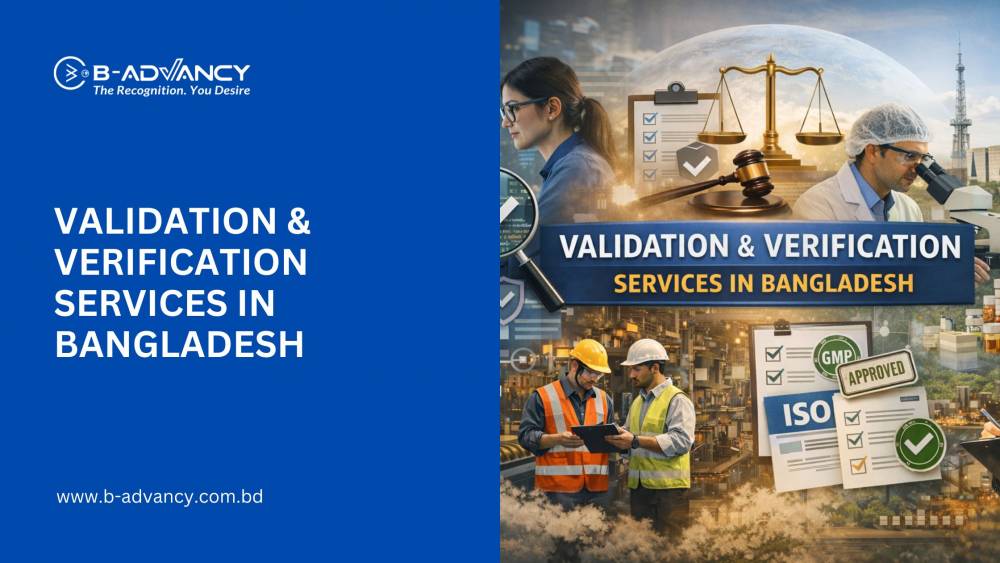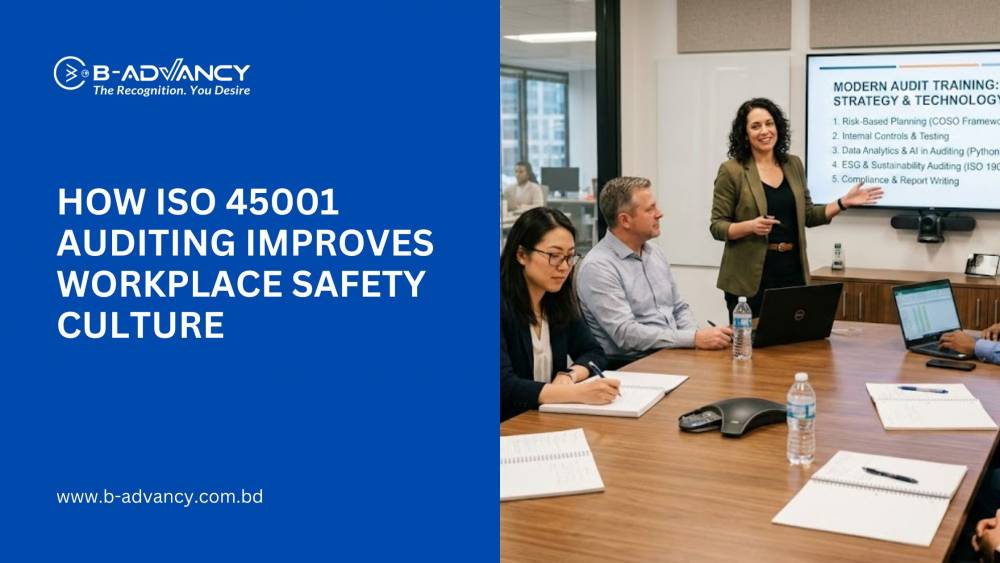The bakery industry in Bangladesh is thriving, with an increasing demand for high-quality baked goods. To ensure that products meet international standards of quality, safety, and hygiene, ISO certification has become a critical factor for bakeries aiming to enhance their reputation and expand their market reach. This blog will explore the importance of ISO certification for the bakery industry in Bangladesh, the benefits it offers, relevant rules and regulations, and how you can start your certification journey with B-ADVANCY Certification Limited.
What is ISO Certification and Why is it Important for the Bakery Industry?
ISO certification is an internationally recognized standard that ensures businesses adhere to best practices in quality management, food safety, and operational efficiency. For the bakery industry, ISO certification is particularly important as it helps maintain consistent product quality, ensure food safety, and improve customer satisfaction. It also enhances the credibility of a bakery, making it more competitive in both local and international markets.
In Bangladesh, where the food industry is rapidly growing, maintaining high standards of hygiene and safety is crucial. ISO certification provides bakeries with a structured approach to managing quality and safety, helping them comply with national and international regulations.
Key ISO Standards Relevant to the Bakery Industry
Several ISO standards are particularly relevant to the bakery industry:
ISO 22000: Food Safety Management System
ISO 22000 outlines the requirements for a food safety management system, ensuring that food products are safe for consumption. It integrates principles from Hazard Analysis and Critical Control Points (HACCP) and is essential for bakeries to manage food safety risks effectively.
ISO 9001: Quality Management System
ISO 9001 sets out the criteria for a quality management system. It helps bakeries ensure consistent product quality by streamlining processes, reducing waste, and enhancing customer satisfaction.
ISO 14001: Environmental Management System
ISO 14001 provides a framework for managing environmental responsibilities. For bakeries, this standard helps in minimizing waste, reducing energy consumption, and ensuring compliance with environmental regulations.
ISO 45001: Occupational Health and Safety Management System
ISO 45001 focuses on providing a safe and healthy workplace. For bakeries, this standard is crucial in managing occupational hazards, ensuring employee safety, and reducing workplace accidents.
Benefits of ISO Certification for the Bakery Industry in Bangladesh
Enhanced Food Safety and Hygiene
ISO certification helps bakeries implement robust food safety management systems, ensuring that products are safe for consumers. This is particularly important in Bangladesh, where maintaining high hygiene standards is essential to prevent foodborne illnesses.
Improved Product Quality
By adhering to ISO standards, bakeries can ensure consistent product quality, leading to higher customer satisfaction and brand loyalty. This is vital for bakeries looking to establish themselves as leaders in the market.
Increased Operational Efficiency
ISO certification promotes the implementation of efficient processes, reducing waste and improving resource management. This not only lowers operational costs but also enhances profitability.
Better Market Access
ISO-certified bakeries have a competitive advantage when it comes to accessing international markets. The certification acts as a mark of quality, opening doors to export opportunities and partnerships with global brands.
Compliance with Regulatory Requirements
ISO certification ensures that bakeries comply with national and international regulations related to food safety, quality, and environmental management. This reduces the risk of legal issues and enhances the business’s reputation.
Bangladesh Rules and Regulations Regarding ISO Certification
In Bangladesh, the government recognizes the importance of adhering to international standards such as ISO. The Bangladesh Standards and Testing Institution (BSTI) is responsible for promoting and ensuring compliance with these standards across various industries, including the food and bakery sector. BSTI plays a crucial role in facilitating the adoption of ISO standards, ensuring that bakeries meet the required benchmarks for quality, safety, and hygiene.
Additionally, the Bangladesh Food Safety Authority (BFSA) oversees food safety regulations, ensuring that food products, including baked goods, are safe for consumption. The BFSA’s guidelines align with ISO 22000 standards, promoting food safety management practices that are critical for the bakery industry.
For more information, visit the official websites of:
Steps to Achieve ISO Certification for Your Bakery
Initial Assessment and Gap Analysis
Begin by assessing your current operations against the requirements of relevant ISO standards. Identify gaps and areas that need improvement to align with the standards.
Develop and Implement Management Systems
Create management systems that meet ISO standards. This involves setting up processes for quality management, food safety, and environmental management, as well as defining roles and responsibilities.
Internal Audit and Management Review
Conduct internal audits to ensure that your management systems are functioning as intended. Regularly review the systems with top management to address any issues and ensure continuous improvement.
Select a Certification Body
Choose a reputable certification body, like B-ADVANCY Certification Limited, to conduct an external audit. Prepare thoroughly for this audit to demonstrate compliance with ISO standards.
Achieve Certification and Continuous Improvement
After a successful audit, you will receive ISO certification. It’s important to maintain and improve your management systems to retain certification and continue benefiting from it.
Challenges in Implementing ISO Certification
While ISO certification offers numerous benefits, implementing the standards can present challenges, such as:
Resource Allocation
Implementing ISO standards requires investment in management systems, training, and technology. While these costs can be significant, the long-term benefits often outweigh the initial expenses.
Training and Change Management
Employees may need training to adapt to new processes and standards. Effective training and change management are essential to ensure smooth implementation.
Documentation and Compliance
Maintaining documentation and ensuring compliance with ISO standards can be time-consuming. However, with proper planning and support, these challenges can be managed effectively.
B-ADVANCY Certification Limited can provide expert guidance and support to help you navigate these challenges, making the certification process smoother and more efficient. To start your ISO certification journey with B-ADVANCY Certification Limited, contact us at:
Email: bangladesh@b-advancy.com Call: +8801612264559
Conclusion
ISO certification is a strategic investment for bakeries in Bangladesh. It enhances food safety, product quality, and operational efficiency, helping bakeries meet both national and international standards. By aligning your operations with ISO standards, you can achieve better business outcomes, reduce risks, and gain a competitive edge in the market. While the path to certification may present some challenges, the long-term benefits make it a worthwhile endeavor.


36.jpg)



































































































































































































